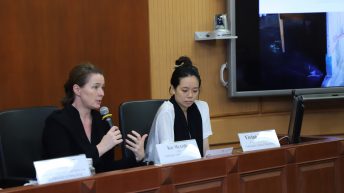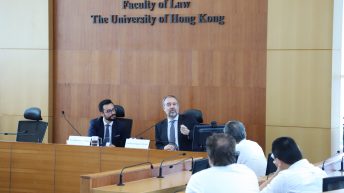Date: 31Aug 2016
Legal Quagmire: Who is in Violation of the Law – Independence Advocates or Those who seek to have Them Barred from Standing for Election?
Talk of the independence of Hong Kong from the People’s Republic of China has triggered much discussion within the community as to the propriety and legality of such advocacy and the pursuit of independence and self-determination in Hong Kong. Two days prior to the commencement of the nomination period for candidates of the 2016 election to the Legislative Council, the Electoral Affairs Commission (EAC) announced the introduction of an additional eligibility criteria for nomination of candidates: the ‘Confirmation Form’, which stressed candidates’ acceptance of Article 1 of the Hong Kong Basic Law on the inalienability of Hong Kong from China. Much legal debate has surrounded both the legality and legitimacy of the form itself, its enforceability, and the equality of treatment accorded to candidates who had or had not completed the form, among other questions. Critics have labelled the move as an attempt to suppress the pro-independence movement, prompting speculation as to the government’s next steps to curb such calls, seen by Beijing loyalists and officials as fanning the flames of secession.
More recently, the desire to prevent such a discourse from taking hold in Hong Kong’s educational establishments, has led to the Education Bureau issuing a stern warning to teachers to ensure that they do not ‘advocate’ independence in schools and to urge them to responsibly ‘tutor’ students so that they can develop an ‘appropriate’ understanding and view of the topic. This has thrown up numerous questions about the propriety and legality of discussing the independence of Hong Kong in various spheres and capacities in light of the rights to freedom of expression, freedom of assembly, political participation and the prospects for the application of China’s national security legislation in Hong Kong.
This interactive discussion aims at engaging students and encouraging the development of critical thinking skills. Through a moderated discussion among expert panellists, led by a fellow student, followed by questions from the audience, the discussion will lead students through the process of assessing the validity of various arguments to help better understand the different points of view emerging in this ongoing debate.
Opening Remarks: Puja Kapai, CCPL Director and Associate Professor, Faculty of Law, HKU
Moderator: Brian Fan, Final Year, LLB Student, Faculty of Law, HKU
Speakers:
Simon NM Young Professor and Associate Dean (Research), Faculty of Law, HKU
Benny Tai, Associate Professor, Faculty of Law, HKU
Eric Cheung, Principal Lecturer and Director of Clinical Legal Education, Faculty of Law, HKU
Carole Petersen, Professor and Director, Spark M. Matsunaga Institute for Peace and Conflict Resolution, School of Law, University of Hawaii
Michael Davis, Senior Fellow, CCPL, Faculty of Law, HKU




